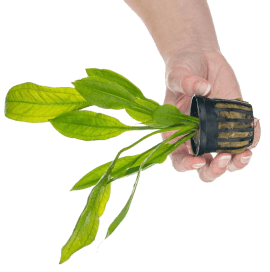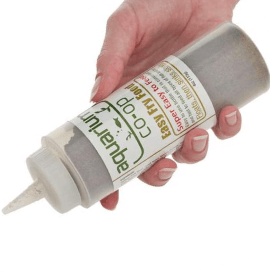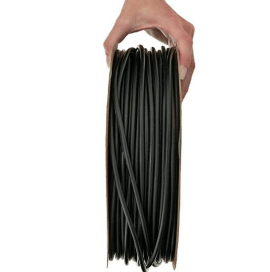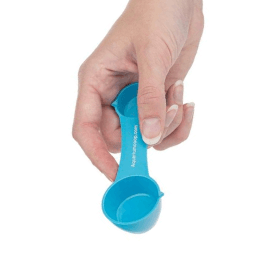Care Guide for Platy Fish – Feeding, Breeding, and Tank Mates
Looking for a colorful, hardy fish that’s easy to breed and looks great with live plants? Platies have always been one of our favorite livebearers to recommend to both beginners and veterans. Learn more about their care requirements when it comes to housing, tank mates, feeding, and of course breeding.
What are Platy Fish?
Platies are a popular livebearer in the freshwater aquarium hobby that are native to Mexico and Central America. The two species most commonly available in fish stores are Xiphophorus maculatus (southern platyfish) and Xiphophorus variatus (variable or variatus platy). They can crossbreed with each other and with swordtail species, which has resulted in many different color variations.
What are the different platy fish types? New colors and patterns are constantly being produced, but some of the most popular varieties include Mickey Mouse, sunburst, red wag, blue, bumblebee, and green lantern platies.
How big do platys get? Platies grow to around 2-3 inches (5-7 cm) in size, but dwarf platies (which have been selectively bred for their shorter body length) usually stay around 1 inch (2.5 cm).
What is the lifespan of a platy fish? Healthy platies can live up to 3-4 years when kept in optimal environments with clean water, low stress, and good nutrition.
How much do platy fish cost? Platies are relatively inexpensive and can be found at fish stores for $2 to $4 each, depending on the type. Try to get the healthiest fish that have bright eyes, full bellies, and active behavior. If you notice other sick fish in the same tank, it may be safer to visit another store to get your platies.

There are countless varieties of platies that come in almost every color in the rainbow.
How Do You Set up a Platy Fish Tank?
Platies can live in a 10- to 20-gallon aquarium or larger. Most livebearers prefer higher pH, but platies can tolerate a very wide range from 6.8-8.5 in our experience. They also enjoy harder water, so if your tap water is especially soft, consider adding more minerals using Seachem Equilibrium or Wonder Shell. We also like to keep our platies with live aquarium plants to help consume some of the organic waste produced by the fish.
Do platy fish need a heater? Most platies do well with temperatures from 70-82°F, but if your air conditioning is set on full blast, you may want to consider getting an aquarium heater. However, variatus platies are accustomed to living in cooler waters and do not require extra heating when kept at room temperature.
Do platies need an air pump? You can use almost any type of aquarium filter with your platies, including those that run on an air pump. Aquarium filters help keep the water clean of floating particles, process nitrogen waste in the water, and ensure your fish get enough oxygen. Read this article for more information on which filter is right for you
Can platys survive in a pond? Yes, we highly recommend variatus platies as an excellent fish to keep in an outdoor mini pond during the warmer summer season. Read our mini pond tutorial for more details on how to set one up.
How many platies should be kept together? A group of three to six platies is a good starting point. As with most livebearers, the males constantly want to mate, so try to keep at least two females for every one male to give the girls a break.

Platies are very easy to sex because the male (above) has a skinny, stick-like anal fin called a gonopodium, whereas the female (below) has a fan-shaped anal fin.
Can platy fish live alone? Yes. While platies do seem to enjoy the company of their own kind, they don't tend to school together in a tight group unless they think you're about to feed them.
What fish can live with platies? These friendly livebearers can be kept with any similar-sized community fish. Some peaceful tank mates to consider include small tetras and rasboras, cory catfish, snails, bristlenose plecos, and rainbowfish.
Can platies live with betta fish? Most likely. In our experience, betta fish can usually live in a peaceful community tank with platies. Just make sure they are housed in a large enough aquarium with lots of plants or decorations so that the betta has enough territory to call his own.
What Do Platy Fish Eat?
These undemanding fish are omnivores and will eat virtually anything you put in the tank. Make sure to feed them a wide variety of foods – such as high-quality flakes, pellets, freeze-dried foods, and frozen foods – so that they get a complete diet with all the necessary vitamins and nutrients.

Platies are not picky eaters, but they will live a longer and healthier life when given a diverse mix of proteins, vegetables, algae, vitamins, and minerals.
How often should platys be fed? Once a day is fine for adults, whereas two to three small meals a day is preferred for growing juveniles. If you notice long strings of poop constantly dangling from your platies, you may be overfeeding your fish so consider decreasing their portion size.
How long can platies go without food? In the wild, food is not always available, so fish do not necessarily get to eat every day. If you are going on vacation for a week or less, your fish can easily survive without any food. However, if you will be away for two or more weeks, consider getting an automatic fish food feeder or finding a pet sitter to take care of your fish.
How Often Do Platy Fish Make Babies?
Platies are livebearers, which means that they give birth to live young. Compared to fish babies that hatch from eggs, livebearer fry are usually bigger, faster, and have a much higher survival rate. In the right conditions, female platies can give birth to 20 to 50 babies per month.
Will platy fry survive in a community tank? Adults display no parental care toward their young and will happily eat them if given the chance. (In fact, one way to control their population is to allow the other adult fish to eat the fry so that only one or two from each batch will survive.) If you wish to increase their survival rate in a community tank, provide lots of decorations, rocks, wood, or live plants as cover for the fry to hide behind. Also, if you're using a hang-on-back or canister filter, make sure to cover the filter's intake tube with an appropriately sized pre-filter sponge so that they don’t accidentally get sucked up.

A lot of enjoyment that comes from successfully breeding fish and watching their babies grow up.
What do I do with platy fry? If you keep the fish well-fed, more and more fry will appear, which means the water will get dirty at a faster rate. To keep the water quality high, you can give the excess fish to your friends or donate them to a pet store. If you're interested in breeding fish for profit, consider selling the offspring to a local fish store. For more information on where to buy live fish online, see our list of recommended vendors:




